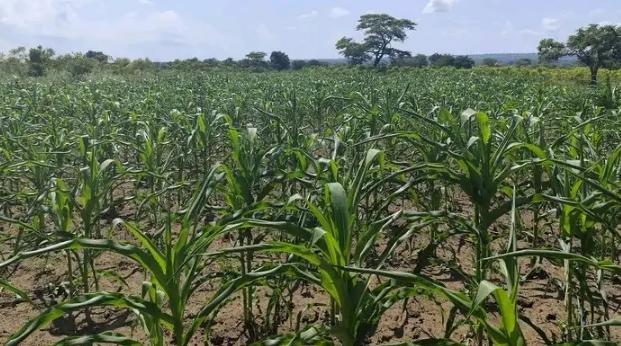Africa-Press – South-Sudan. Kajo Keji county in South Sudan’s Central Equatoria State is grappling with a devastating dry spell that has left most crops stunted, dried, and unproductive as rains abruptly ceased in mid-May, sparking fear of potential hunger.
Local agricultural authorities are worried and have warned of an impending food crisis as the first farming season comes to an end.
The county’s main crops include maize, groundnuts, cassava, and sorghum.
Most farmers anticipated that regular seasonal rains could help their crops grow; however, the crops withered before reaching maturity.
Murya Alex Antony, an official from the Kajo Keji Agricultural Department, expressed grave concern over the situation.
“When you look at the condition of the crops, it is truly alarming,” he said. “If urgent solutions are not found, the county—and possibly the entire country—could face serious consequences from climate change.”
The dry conditions, affecting crops during their crucial flowering and fruiting stages, have made it nearly impossible for many farmers to expect any meaningful harvest. According to local authorities, all payams in Kajo Keji are affected and likely to record significant losses.
“As I move from payam to payam, I see the same thing—failed crops,” said the County Commissioner. “The entire county is affected, and we urgently need intervention from both the state and national governments.”
Kaya Denis Mule is one of those affected.
“My maize is at the flowering stage, but completely stunted. The leaves are scorched and can no longer support the crop,” he lamented.
Poni Susan, another farmer in the area, also shared similar frustrations. She delayed planting due to an earlier heatwave and now fears total crop failure.
“The weather is so unpredictable. I don’t think I’ll harvest anything this year,” she said.
Kajo Keji, located within South Sudan’s fertile Green Belt region—alongside Eastern and Western Equatoria—has long been considered part of the country’s breadbasket. However, the county is now witnessing increasing climate instability, raising fears of widespread food insecurity.
Murye is calling for urgent actions to mitigate the effects of the crisis. This includes support for irrigation systems, drought-resistant seeds, and investment in climate-resilient agricultural practices.
“We are requesting urgent preparation and support to help farmers catch up during the second planting season,” said Murya. “We need strong agricultural initiatives that can reduce the impact of climate change on our crops.”
For More News And Analysis About South-Sudan Follow Africa-Press






